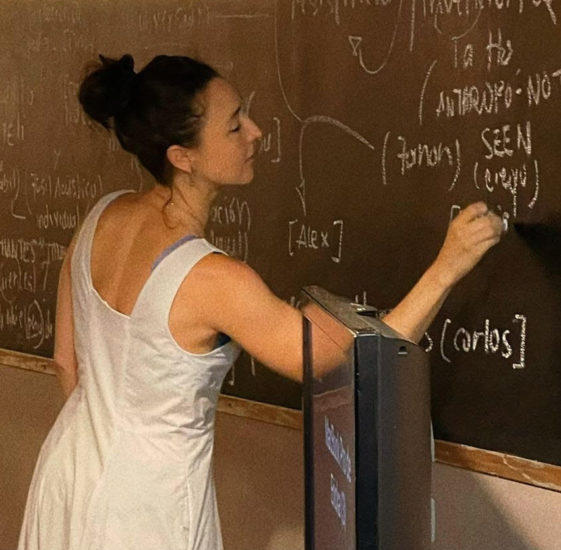María del Rosario Acosta López

María del Rosario Acosta López has a PhD in philosophy from the National University of Colombia (2007) and is currently a professor of Latin American studies in the Department of Hispanic Studies at the University of California, Riverside. Her main research interests are aesthetics and the philosophy of art, modern and contemporary political philosophy, German idealism and Romanticism and, more recently, contemporary philosophical approaches to trauma and memory, with an emphasis on Latin America and a decolonial perspective. Her most recent publications (all 2019) include four special journal issues: an issue of Ideas y valores on philosophy and conflict in Colombia from a feminist perspective, an issue of Diálogo on art and historical memory in Colombia, an issue of Diacritics on collective temporalities, and an issue of Philosophical Readings about philosophy in and about Colombia. Her current research project and work in progress is a book titled Gramáticas de lo inaudito: Pensar la memoria después del trauma (Grammars of the Unheard-Of: Thinking Memory after Trauma) (Editorial Herder, expected by 2023; Fordham University Press, expected by 2024), which is the result of the encounter between her practical work with survivors of paramilitary violence in Colombia and police torture in Chicago and her philosophical reflections about memory initiatives in contexts of traumatic violence. Two of her books will be published shortly: Narrativas de la comunidad: De Hegel a los pensadores impolíticos [Narratives of the community: From Hegel to the impolitical thinkers] (Ediciones Macul) and The Unstoppable Murmur of Being Together, coauthored with Jean-Luc Nancy (Fordham University Press); she is also currently writing a book for Bloomsbury titled Aesthetics of Resistance in Latin America and has recently published a coedited volume on transitional justice in Colombia, Justicia transicional en Colombia: Una mirada retrospectiva (Editorial Planeta, 2023).
Authored Essays
“Making Memory”: Historical Memory in Colombia and Its Legacies
Memory Breaks the Everyday Habit of Invisibilizing Others
To Hear the Other’s Pain without Being Shipwrecked in Horror
Rehumanization Must Be Memory’s Task
Toward an Undisciplined Listening
Giving a Place to the Dead and Reassembling the Present
Humanities That Heal, Objects That Remember
Memory Work Needs to Be Infused with the Power of Imagination
The Beauty of Liberatory Memory Work Is in the Ceremony

 View PDF
View PDF